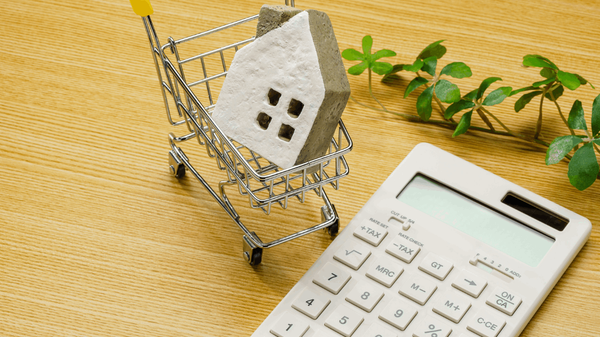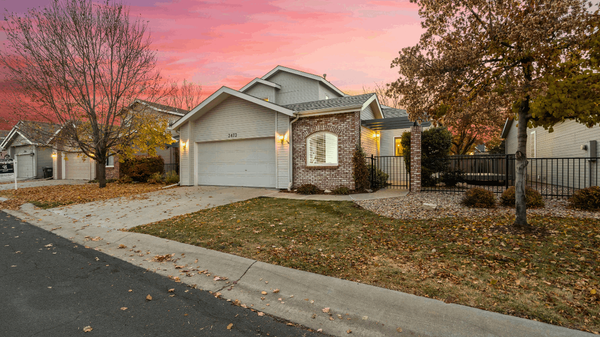How Millennials View and Approach Homeownership

Millennials are redefining what it means to buy a home. Unlike generations before them, their approach to homeownership is shaped by economic shifts, evolving lifestyles, and a distinct set of priorities. So, what exactly are millennials looking for when it comes to real estate—and what’s holding some of them back?
Let’s explore the current mindset, motivations, and challenges of millennial homeowners.
Are Millennials Buying Homes or Holding Back?
There’s plenty of chatter (and data) that shows a mixed picture of millennial homeownership. According to Apartment List’s 2021 report, only 42% of millennials own a home by age 30—significantly lower than Gen X (48%) and Baby Boomers (51%) at the same age. On the flip side, a study from the National Association of Realtors (NAR) in the same year reported millennials made up the largest percentage of homebuyers at 37%.
So, what’s really going on? In short: millennials are buying—but later in life, and often with different expectations.
The pandemic’s impact on interest rates and job recovery helped some millennials stretch their income further. But overall, they’re more cautious, more strategic, and more selective in their home-buying journey.
Why Millennials Are Slower to Buy Homes
1. Affordability Challenges
Rising home prices combined with relatively stagnant wages make it hard for many millennials to enter the housing market. In fact, over 60% report having no savings for a down payment. And since lenders typically recommend that mortgage payments stay under 25% of monthly income, affordability becomes a key barrier.
Still, it’s not all bleak—NAR’s Home Affordability Index indicates that median-income households can afford median-priced homes, especially in certain parts of the country.

2. The Weight of Student Debt
Student loans remain a major financial hurdle. With U.S. student debt reaching nearly $1.6 trillion in 2020, many millennials say these payments delay their ability to save for a down payment or qualify for a mortgage. College grads with debt need, on average, four more years to save for a home compared to peers without student loans.
Additionally, Pew Research found that more than half of adults aged 18–34 lived with parents in early 2020, partly due to economic uncertainty.

3. Delaying Marriage and Parenthood
Millennials are choosing to marry and start families later than previous generations. The average marriage age in the U.S. is now nearly 30 for men and 28 for women. Since many people view homeownership as part of settling down, it follows that younger millennials might delay buying until later stages of life.

How Millennials Are Changing the Game
1. Skipping the “Starter Home”
Many millennials are bypassing entry-level homes and waiting until they can afford the house they truly want. Instead of rushing into a smaller place, they’re saving longer to land a home that meets both current and future needs.

2. Suburban Migration with a Modern Twist
According to Zillow, 47% of millennial homebuyers are opting for suburban locations. They’re looking for space, updated amenities, and long-term value. Still, about a third remain in urban areas—more than Gen X or Baby Boomers—reflecting the group’s diverse lifestyle preferences.

Tips to Help Millennials Become Homeowners
1. Tackle High-Interest Debts First
Prioritize paying down debts with high interest rates before saving aggressively. This frees up monthly income and helps improve credit scores for better mortgage options.

2. Start Saving Early
Automate monthly contributions to a dedicated house fund. Setting aside bonuses or side hustle income can help speed things up. Aim for at least a 20% down payment to avoid paying PMI and reduce your loan burden.

3. Reevaluate Spending Habits
Think long-term. Temporarily cutting back on discretionary expenses—like travel or luxury items—can help redirect funds toward your housing goals.

4. Monitor and Improve Your Credit Score
A strong credit score is key to getting favorable loan terms. Most lenders offer the best rates to buyers with scores above 760, but even moderate improvements can help reduce interest rates and monthly payments.

Conclusion
Millennials are changing the real estate narrative—not because they don’t want to own, but because they want to own smart. From dealing with student loans to choosing homes that suit modern lifestyles, their journey is more intentional and financially strategic. The dream of homeownership is still alive—it just looks different today.
If you're a millennial looking to buy, the key is preparation. With the right financial plan and mindset, your dream home might be closer than you think. And when you're ready to make the move, reach out to Las Vegas’ most trusted realtor to guide you every step of the way.
FAQs
1. Are millennials still interested in buying homes?
Yes! Despite the delays, millennials are buying homes—often later in life and with specific goals in mind.
2. Is renting better than buying for millennials?
That depends on lifestyle, financial stability, and market conditions. Renting may offer flexibility, but buying builds long-term equity.
3. How much should I save for a down payment?
Aim for at least 20% to avoid private mortgage insurance (PMI), but many loan programs allow for lower down payments.
4. How can student debt affect buying a home?
Student loans can impact your debt-to-income ratio, which affects loan approval. Paying them down improves your chances of qualifying for a mortgage.
5. What kind of home do millennials prefer?
Many seek updated homes in suburban areas with room to grow, but a significant portion still prefers city living with convenient access to amenities.
Categories
Recent Posts











7997 W. Sahara Ave. Suite 101, Vegas, NV, 89117, United States
